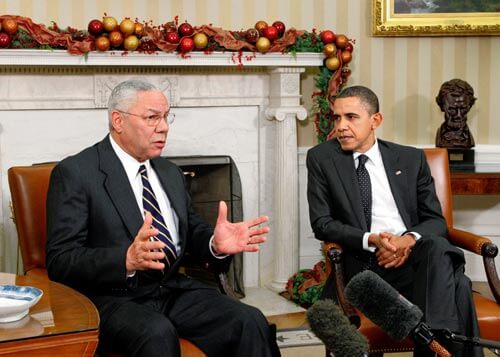The commemoration last week at the LBJ Presidential Library in Austin, Texas of the 50th anniversary of passage of the Civil Rights Act was a powerful enough event to warrant the presence of the country’s sitting president, Barack Obama, as well as three of his predecessors – Jimmy Carter, Bill Clinton and George W. Bush (the only other living former president, George H.W. Bush, was named the three-day event’s honorary chairman). Good move, that, for the organizers to have selected the Johnson Library as setting for this formal revisiting of a truly ground-breaking piece of legislation, spearheaded by a White House occupant of whom, it’s fair to say, going in, most Americans didn’t see initiative of such major historical significance in the cards.
“History will be kind to Lyndon Johnson,” I recall an NYU professor saying in the mid-1960s. And it will probably take, over time, who knows how many consciousness-raising happenings in the vein of last week’s special celebration to reshape public perception of the Johnson legacy. Making the ominous shadow cast by Vietnam less of a presence in the collective recall of the Johnson presidency has been, and will doubtless continue to be no easy task. But, in truth, Johnson’s domestic agenda and accomplishments were likewise of leviathan proportions, only vastly different from Vietnam’s enduring ugliness.
The scuttlebutt has it that President Obama gets somewhat irritated whenever attempts are made to underscore the distinction between LBJ and himself, specifically with respect to the handling of Congress. An Associated Press report on last week’s event, referencing the comparison, speculated that in some quarters there allegedly was “nostalgia for Johnson’s mastery of congressional deal-making.” It is of course patently unfair for not only Obama, but just about any other president to be compared, on the congressional relations front, to Johnson, whose legislative skills were legendary. Even were Johnson not in a class by himself, though, the comparative rankings of Obama and LBJ, based on the respective records with Congress, remains a most inequitable comparison.
There’s no gainsaying that towering obstacles stood in Johnson’s path at certain points of the aggressive agenda he was determined to pursue. While the creation of programs like Medicare and Medicaid weren’t exactly free of congressional opposition, it was in the landmark legislation intended to bring sweeping change to the lives of people of color that Johnson stood to have his head handed to him. Johnson’s championing of civil rights and voting rights and his unflagging resolve to browbeat anyone in Congress who seemed likely to be a hindrance to passage of the legislation were responsible for those two iconic legislative initiatives being written into law. Notwithstanding Southern white support for the Democratic Party largely disappearing as a consequence.
What President Obama faces, by contrast, is a Republican presence on Capitol Hill, in the House particularly but the Senate as well, that is offended by his being where he is. The president has had to serve in an environment of abundant disrespect for the presidency within the body of Congress that is unprecedented. It’s a situation that clearly doesn’t lend itself to any desire, on the part of many on the GOP side, to play ball. Being tagged with a “gridlock” or “do-nothing” label evidently fails to register with folks steeped in ill feeling toward this president.
Even so, let there be no trivializing of LBJ’s heavy lift back in 1964 and ’65. One has to appreciate that coming into the presidency, tragic circumstances and all, Johnson wasn’t likely to be regarded as the Kennedy replacement who would seize the baton and run with fresh legs to successful conclusion of the civil rights fight Kennedy couldn’t win. Johnson had been more or less in odd-man-out status in the Kennedy administration. It’s a matter of record that President Kennedy’s most trusted adviser, Robert Kennedy, barely hid his dislike for Johnson. This Texan, placed on the ticket in 1960 purely for political expediency and then dissed during his Veep stint by the Camelot elites, seemed the unlikeliest of civil rights gladiators.
Because of his origins and the system that framed his political orientation, Johnson’s passionate fight against the denial of rights for people of color was all the more remarkable. His anger was palpable when “Southern justice” reared its ugly head in outbreaks of violence directed at African Americans and their sympathizers, as in the triple murder of civil rights workers in Mississippi in June, 1964 and similar acts that followed. Johnson was forthright in making known to the Klan, perpetrators of much if not all of this mayhem, that he considered them enemies of his administration.
If last week’s Civil Rights Act anniversary event and other occasions for serious reflection on the LBJ footprints get the country to more even-handed appreciation of the man, it would be richly deserved. Recent intelligence updates re Johnson’s take on the Vietnam War tend to paint him as a reluctant warrior. Even if accurate, of course, this fails to speak to the humongous toll in human life and suffering occasioned by the war. History will not give Johnson a pass on this. But neither should history, and people of color prominently so, neglect to give him his due for standing tall on the domestic front.























